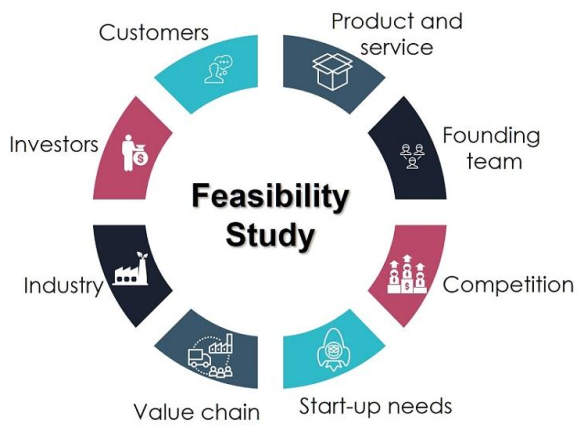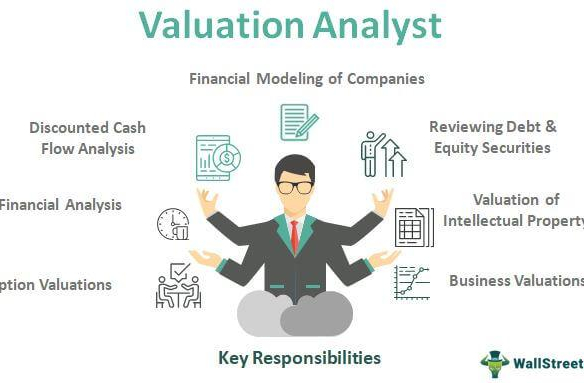In a world where the value of possessions can fluctuate as swiftly as the market itself, understanding the intricacies of automobile valuation services has never been more critical. From vintage classics to modern vehicles, the worth of an automobile isn’t just a number; it tells a story of craftsmanship, technological innovation and personal journey. As owners seek to navigate the complexities of buying, selling, or insuring their vehicles, the role of professional valuation services emerges as a beacon of clarity amidst a sea of uncertainty. However, delving into automobile valuation isn’t merely a financial exercise; it’s deeply intertwined with legal frameworks and standards that govern ownership and transactions. 
Exploring the Foundations of Automobile Valuation Services
Automobile valuation services are fundamentally rooted in a variety of methods and principles that aim to ascertain the accurate worth of vehicles. Valuating a vehicle involves understanding its physical condition, age, market demand, and brand reputation. These factors combine to provide a holistic view that informs prospective buyers, sellers, and insurance providers. furthermore, professionals rely on industry standards and guidelines, such as those established by the American Society of Appraisers, to ensure that their assessments are both credible and reliable.
To enhance consistency and clarity in the valuation process, services often utilize extensive databases that track market trends and transaction history. This data supports accurate appraisals by revealing statistical insights, such as:
- Recent sales prices of similar vehicles
- Depreciation rates specific to vehicle models
- Condition rankings based on standardized criteria
Below is a simplified representation of how different levels of condition can impact a vehicle’s estimated value:
| Condition level | Estimated Value Adjustment |
|---|---|
| Excellent | +20% |
| Good | +10% |
| Fair | -10% |
| Poor | -30% |
Understanding these foundational concepts is critical for anyone involved in the buying, selling, or insuring of vehicles. Automobiles are not just commodities; they embody investments that require thoughtful appraisal to determine their true market value.

Navigating the Legal Landscape of Vehicle Appraisals
In the realm of vehicle appraisals, understanding the legal framework is essential for both service providers and clients. A thorough grasp of relevant state and federal regulations can prevent disputes and promote fair practices in automobile valuation. Ensuring compliance with laws such as the Uniform Standards of Professional Appraisal Practice (USPAP) is critical, as these guidelines set the standards for the appraisal industry. Adhering to these regulations not only helps in maintaining credibility but also protects clients from potential legal repercussions associated with inaccurate valuations. Organizations and individuals involved in vehicle appraisals must be vigilant and continuously educated about changes in legislation.
The appraisal process itself is often subject to legal scrutiny, necessitating an in-depth understanding of various appraisal methods, documentation, and reporting standards. Effective vehicle appraisals involve numerous elements that can influence the final valuation, including:
- Market Research: Analyzing recent sales data for comparable vehicles.
- Condition Assessment: Thorough inspections to determine the car’s physical condition.
- Documentation: Detailed reports that articulate the valuation process and findings.
In addition to these critical factors, disputes regarding automobile value often arise, making it advisable for appraisers to remain informed about dispute resolution mechanisms. Establishing clear communication with clients and utilizing legally binding agreements can also mitigate potential conflicts. Below is a simple overview of common vehicle appraisal methods versus their legal implications:
| Appraisal Method | Legal Implications |
|---|---|
| Comparative Market Analysis | Regulated under USPAP standards. |
| Cost Approach | Requires documentation to validate claims. |
| Income Approach | Must adhere to specific industry guidelines. |

Key factors Influencing automobile Value Accuracy
accurate automobile valuation hinges on several critical factors that can significantly impact the final assessment of a vehicle’s worth. Among these,**market demand** plays a pivotal role; fluctuations in consumer preferences can cause values to rise or fall unexpectedly. Another essential aspect is the **condition and mileage of the vehicle**, which directly reflect its usability and longevity. Additionally, the **make, model, and year** of the automobile contribute to its desirability and, consequently, its market value. Other factors such as the **vehicle history report**, including accidents or service records, can further refine an appraisal by revealing potential red flags that might deter prospective buyers.
Furthermore, economic indicators also influence valuation outcomes. **Interest rates**, for example, can alter buyer behavior; higher rates may lead to decreased demand, lowering prices. Seasonal trends, such as increased vehicle sales during certain holidays or tax seasons, can create temporary spikes in value. It’s also important to consider the **geographical location** of the sale, where specific regions may exhibit unique preferences for certain types of vehicles. Here’s a simple table summarizing these factors:
| Factor | Description |
|---|---|
| Market Demand | influences value based on current consumer interests. |
| Condition & Mileage | Directly correlates with the vehicle’s performance and longevity. |
| Make & Model | Specific brands and models can command higher prices. |
| Vehicle History | prior accidents or repairs can affect trust and value. |
| Economic Indicators | Interest rates and economic conditions can shift market sentiment. |
| Geographical Location | Regional preferences can lead to variations in demand. |

Best Practices for Engaging Valuation Experts
engaging valuation experts requires a thoughtful approach to ensure that the relationship is mutually beneficial and productive. **select professionals** with the right experience and credentials by considering their track record in automobile valuation specifically. This can include looking at their past projects, industry affiliations, and client testimonials. Moreover, it’s vital to **communicate clearly** your needs and expectations from the outset. Discussing the scope of work, timelines, and deliverables will help both parties stay aligned and reduce the potential for misunderstandings. Additionally, establishing a framework for ongoing communication can enhance collaboration. Scheduling regular touchpoints allows for real-time updates and adjustments as necessary. It’s also invaluable to **provide all relevant data** upfront; this will aid the valuation expert in making a more accurate assessment. Below is a simple table outlining key elements to consider when choosing a valuation expert:
| Criteria | Details |
|---|---|
| Experience | Years of experience in automobile valuation |
| Certifications | Relevant industry qualifications and memberships |
| References | Past client testimonials and case studies |
| Communication | Availability for updates and discussions |
By focusing on these elements, you can foster a more efficient partnership with your chosen valuation expert, leading to better outcomes and a clearer understanding of the automobile valuation process.
The Way forward
As we steer toward the conclusion of our exploration into automobile valuation services, it becomes evident that understanding their significance and the legal frameworks surrounding them is paramount for both consumers and industry professionals. Whether you are an individual seeking an accurate assessment of your vehicle’s worth or a business navigating the complexities of asset evaluation, grasping the nuances of valuation services can empower informed decisions. With a landscape marked by fluctuating market trends and legal stipulations, the ability to navigate these waters with precision is invaluable. A well-documented valuation not only facilitates obvious transactions but also safeguards against potential disputes that could arise down the line. In essence, automobile valuation services are more than just numbers on a page; they represent clarity in a world where disputes can linger like a fog over a winding road. As you embark on your journey within this realm, may you carry forth a comprehensive understanding of its importance and legalities, ensuring that your automotive assets are accurately represented and protected—all while navigating with confidence in the driver’s seat of knowledge.




Join The Discussion